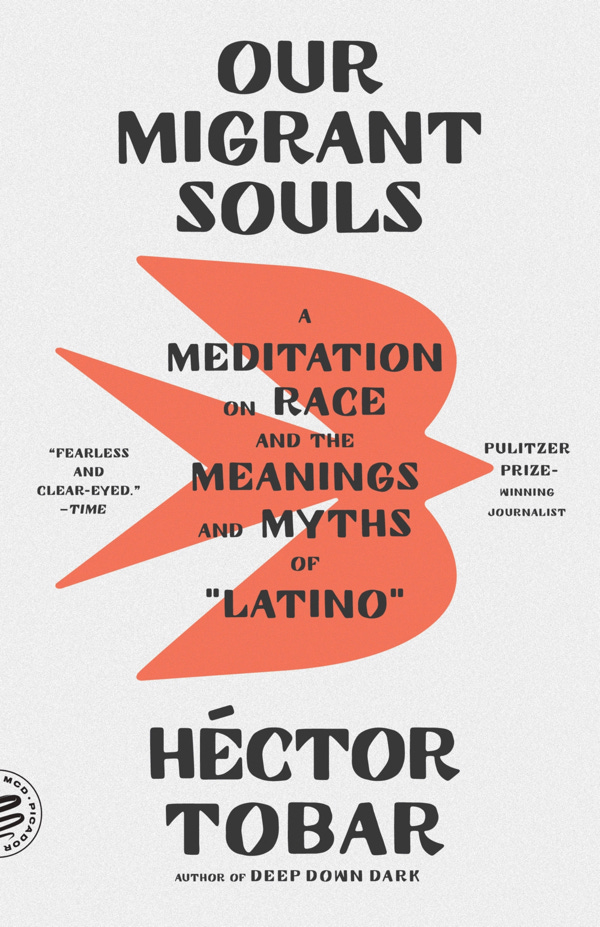“Our Migrant Souls: A Meditation On Race And The Meanings And Myths Of ‘Latino’”
Biblio File column
“Like ‘mutant,’ ‘Vulcan,’ or ‘Wookiee,’” writes Pulitzer Prize-winning journalist Héctor Tobar, “’Latino’ and ‘Latinx’ and ‘Hispanic’ are the made-up words of storytellers describing a group of people engaged in an adventure. Latino people are brown, Black, white, and Indigenous, and they are European, Asian, and African. Some of us speak excellent Spanish, but many more of us do not.”
Still, there are historical ties: “This diverse group of people is joined together by shared roots in the upheavals and the crises set in motion by the building of the United States into a global superpower, and, further back in time, by the Spanish Crown’s attempt to build an empire in the Western Hemisphere.”
Tobar (hectortobar.com) is a Professor of English and Chicano/Latino Studies at UC Irvine and the author of “Our Migrant Souls: A Meditation On Race And The Meanings And Myths Of ‘Latino’” ($18.99 in paperback from Picador; also for Amazon Kindle), the 2024-2025 “Book In Common.”
Book discussions are scheduled throughout the academic year at Chico State (www.csuchico.edu/bic), Butte College, and in the community. The website notes that “Latinx students make up 37% of Chico State’s student body and over 30% of Butte College’s students identify as Latinx. Both of our campuses are Hispanic Serving Institutions” with the emphasis on “servingness.”
Tobar’s compelling prose blends the complexities of history, and his students’ experiences, with his own narrative including visits to his ancestral homeland, Guatemala, where he was conceived, and Los Angeles, where he was born, and where in 1967 a white supremacist moved next door. Later, James Earl Ray would become Martin Luther King Jr’s assassin.
Paradoxically, “The people now known as Latino seem to be perpetually on the brink of being the next group assimilated into whiteness (following the Jews, Italians, and other groups), only to be racialized as a dark other.” Though “race” is a biological myth, “We know race shapes how people see us, that it is a category into which our bodies and our histories are supposed to belong.”
For Tobar, the question “Who am I?” would take an entire book to answer. This is that book.
Copyright Chico Enterprise-Record; used by permission



